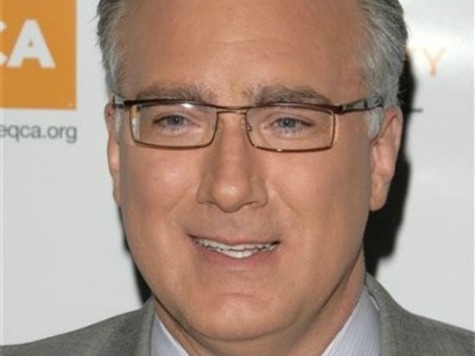Over the last few days, there has been some sloppy reporting about the tragedy involving the death of 20-year-old Kevin Ward Jr.
Saturday night, NASCAR driver Tony Stewart hit a walking Ward during a dirt-track race at Canandaigua Motorsports Park in New York. The dirt-track race’s only tie to NASCAR is the fact that Tony Stewart – a NASCAR Sprint Cup driver – participated. Empire Super Sprints actually sanctioned the event, something missed by more than a few.
Despite the differences between NASCAR and dirt-track racing, some at ESPN comment on the incident, including the network’s chief agitator Keith Olbermann, as though they were one and the same.
If @NASCAR wants to run anyway today I can’t argue against it. Death is part of their business. But spare us the “so we move on” BS.
— Keith Olbermann (@KeithOlbermann) August 10, 2014
This newly found interest and emphasis by ESPN could be viewed as a cynical attempt to gin up controversy and thus boost NASCAR viewership on their network.
It is important to note that the accident occurred as NASCAR is in relative decline – its ratings have hardly been what the sport experienced during its heyday in the 1980s and ’90s – and ESPN is in the last year of an eight-year $4.8 billion TV package deal for NASCAR with parent company ABC, as well as FOX, Fox Sports 1 (formerly SPEED), and TNT.
Since 2005, when the eight-year contract began, television ratings reportedly have fallen 47 percent for Sprint Cup telecasts.
In 2010, already several years into this slide, NASCAR attempted to ramp-up interest when the sanctioning body’s vice president of competition Robin Pemberton announced a new hands-off approach, dubbed as “boys have at it.” So there is precedent for such antics, at least on the part of NASCAR itself. NASCAR looked to gin up more controversy and scuffles like the famous one at the 1979 Daytona 500 when a crash on the final lap led to a fistfight between first- and second-place Cale Yarborough and Donnie Allison.
Even Tony Stewart–who commentators have deemed to be a “bad boy” of NASCAR–seemed perplexed by the 2010 announcement.
“I’m curious now what the true meaning is,” Stewart said at a news conference in 2011. “I think they need to do a better job of explaining to all of us what it means and what’s acceptable and not acceptable. I’m all for whatever they want to do, but every time a situation happens like this, we all go, ‘Well, this is what they told us, and this is what it is.'”
Pemberton’s announcement, as vague as it may have seemed at the time, showed an effort by NASCAR to get back to its roots and the PR triumph that came from the 1979 Daytona 500.
Instead, it just came off as manufactured and showed a tendency for NASCAR and its broadcasters to seek artificial ways to get more eyes on the races.
None of it has really worked. Big races such as the Daytona 500 are still huge draws, but the rest of the season has become a slog. And by the time the fall rolls around, viewers abandon NASCAR for college football and NFL games.
Even the 2004 introduction of the “Chase,” NASCAR’s so-called playoff system, hasn’t stemmed the continued struggles to generate and maintain interest in the sport.
With this last gasp by ESPN, and with NBC set to take over the second half of the NASCAR season in 2015, and football season right around the corner – the Stewart-Ward tragedy has provided a convenient manner for ESPN to drum up more interest.
Sunday’s Watkins Glen Sprint Cup road course race, for example, in which Stewart did not participate, drew a 3.1 overnight rating, up slightly from a 2.7 rating a year earlier.
With even that slight increase, imagine what sort of response will come if/when Stewart does suit up and gets into the car.
We’ve now seen the bizarre analysis from Colin Cowherd, one of the know-nothings on the radio side of ESPN, trying to derive deeper cultural meaning from the incident.
“It’s really, really part of the South,” Cowherd said, again conflating NASCAR with auto racing as a whole. “And it’s an eye-for-an-eye culture.”
Even on Sunday following the event at Watkins Glen, SportsCenter, the network’s marquee highlight show, spent 30 minutes reflecting on the race and how it was tied to the Canandaigua incident the night before. It was not until about halfway through that the show delved into the day’s biggest event — the PGA Championship.
Next week’s race is at the Michigan International Raceway in Brooklyn, Michigan. It’ll also be carried by ESPN. Regardless of whether or not Stewart decides to race, or NASCAR allows him to do so, the concern police will be on patrol and asking the important questions about NASCAR, safety, and our society with the hope that you’ll tune in for the answers.

COMMENTS
Please let us know if you're having issues with commenting.